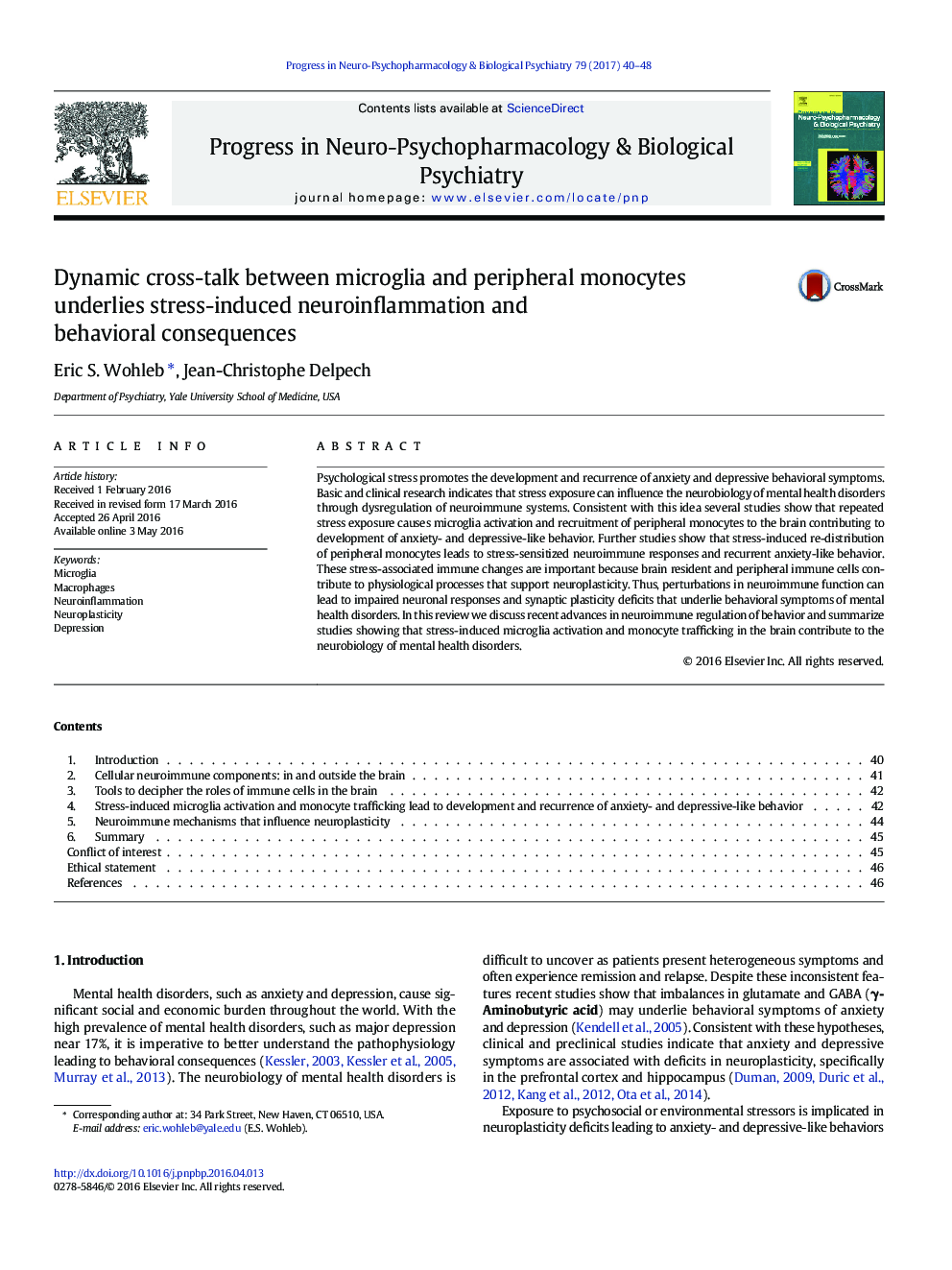| Article ID | Journal | Published Year | Pages | File Type |
|---|---|---|---|---|
| 5558078 | Progress in Neuro-Psychopharmacology and Biological Psychiatry | 2017 | 9 Pages |
Psychological stress promotes the development and recurrence of anxiety and depressive behavioral symptoms. Basic and clinical research indicates that stress exposure can influence the neurobiology of mental health disorders through dysregulation of neuroimmune systems. Consistent with this idea several studies show that repeated stress exposure causes microglia activation and recruitment of peripheral monocytes to the brain contributing to development of anxiety- and depressive-like behavior. Further studies show that stress-induced re-distribution of peripheral monocytes leads to stress-sensitized neuroimmune responses and recurrent anxiety-like behavior. These stress-associated immune changes are important because brain resident and peripheral immune cells contribute to physiological processes that support neuroplasticity. Thus, perturbations in neuroimmune function can lead to impaired neuronal responses and synaptic plasticity deficits that underlie behavioral symptoms of mental health disorders. In this review we discuss recent advances in neuroimmune regulation of behavior and summarize studies showing that stress-induced microglia activation and monocyte trafficking in the brain contribute to the neurobiology of mental health disorders.
